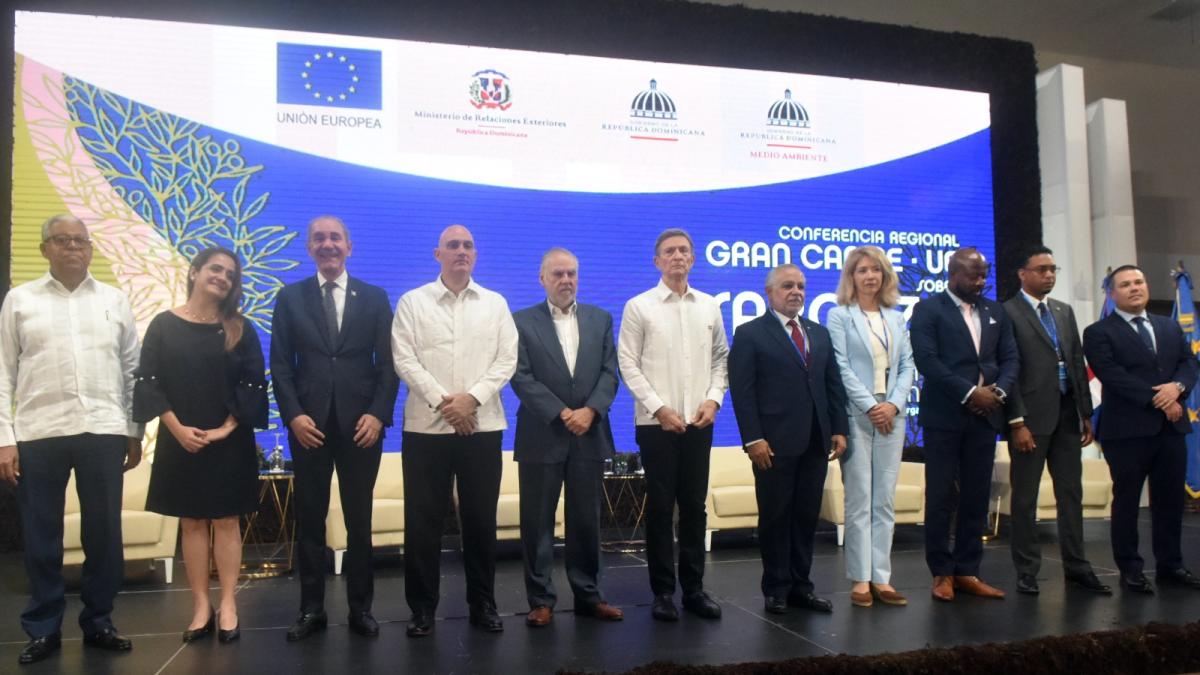Authorities from different countries in the Caribbean gathered yesterday in the country to discuss ways to confront the so-called “sargassum crisis”, in search of solutions aimed at turning this marine algae into an economically useful and profitable resource.
As explained by the Minister of Economy, Planning and Development, Pavel Issa, within the framework of the “Greater Caribbean – EU Regional Conference on Sargassum: Turning Sargassum into an Opportunity”, the Dominican Republic is in a process of alliance with other countries through which it crosses the Caribbean Sea, to create a space for discussion in which identifying possible alternatives to the problem.
“We need a useful and profitable use of Sargassum, which allows early harvesting to be economically feasible, before it reaches the coasts, or if it reaches the coasts, to collect it quickly,” Issa said.
According to his statements, although the paths are not clear, the participation of the ministry, of which he is the owner, is necessary, as it has a fundamental role in trying to reflect and express the efforts of various entities, such as the Ministry of Environment and the Ministry of Tourism and Municipalities, which are very important because they are found in local waste dumps where Sargassum ends.
Trouble coping
Likewise, the Minister indicated that Sargassum is a particular problem for the tourism sector, and the Dominican Government is aware of this impact and is therefore taking the necessary measures; However, you need to answer certain questions to know how to attack.
Knowing the specific cause of the presence of these algae, which is attributed to the rise in sea temperatures, and global warming on a general level, is one of the needs of different nations to determine their actions.
The head of the economy also confirmed the addition of questions about how to deal with Sargassum and what is the cost of collecting and maintaining protected coasts, so that the beaches are less affected and maintain the flow of tourists.
Minister of the Environment and Natural Resources Miguel Ceara Hatton.
comfort to the world
“If it’s a useful input for energy production, for fertilizer production, for example, as has been suggested with some products, that would be a huge relief for the whole world because if it were viable, there would simply be an economic interest from everyone around the world to collect sargassum, but in this At the moment we still do not have final solutions,” Issa explained.
In addition, Environment Minister Miguel Siara Hatton indicated that there are solutions to deal with Sargassum. However, it is expensive and many discussions are still necessary to make relevant decisions.
“Yes, there are solutions, but they are very expensive and this is something we still have to discuss, and there are many things. Who is this money coming from, if it is from the state or from a private company. How do you transport three or four million tons of wet seaweed ?
He pointed out that any solution applied must aim to end millions of tons “in order to solve the problem gradually.” Other than the economist, however, he said, there are a series of problems that do not facilitate the work, such as having to remove it from sea water without making it rot.
They come here in tons
Ceara Hatton has also confirmed that an average of three or four million tons of wet sargassum covers the waters of the Caribbean Sea in the Dominican Republic.
From what he revealed, there was talk that this year there would be a patch of this marine algae about 8,000 kilometers long, with an average flow of 60 or 70 million tons in the entire Antilles, which is exactly the amount that was found moving into the area.
“The slick that’s moving towards the Caribbean is about 70 million tons of sargassum humus… It’s a fairly large size and it’s estimated that in the Dominican Republic it could be between 3 and 4 million tons,” Ceara hoped.

“Music buff. Social media lover. Web specialist. Analyst. Organizer. Travel trailblazer.”

:quality(85)/cloudfront-us-east-1.images.arcpublishing.com/infobae/TEQF6EONZRFGLLLDIDD4L2O4EE.jpg)

:quality(75)/cloudfront-us-east-1.images.arcpublishing.com/elcomercio/XU32LRAEZFDDPNVHLFU3CKVBYY.jpg)



More Stories
Sheinbaum, Galvez, Mainz campaign wrap-up, news and more
Sheinbaum and Mainz’s CDMX campaign wraps up: Road Alternatives and Street Closures
Ortega attacks Humberto Ortega and declares him a “traitor to the country”